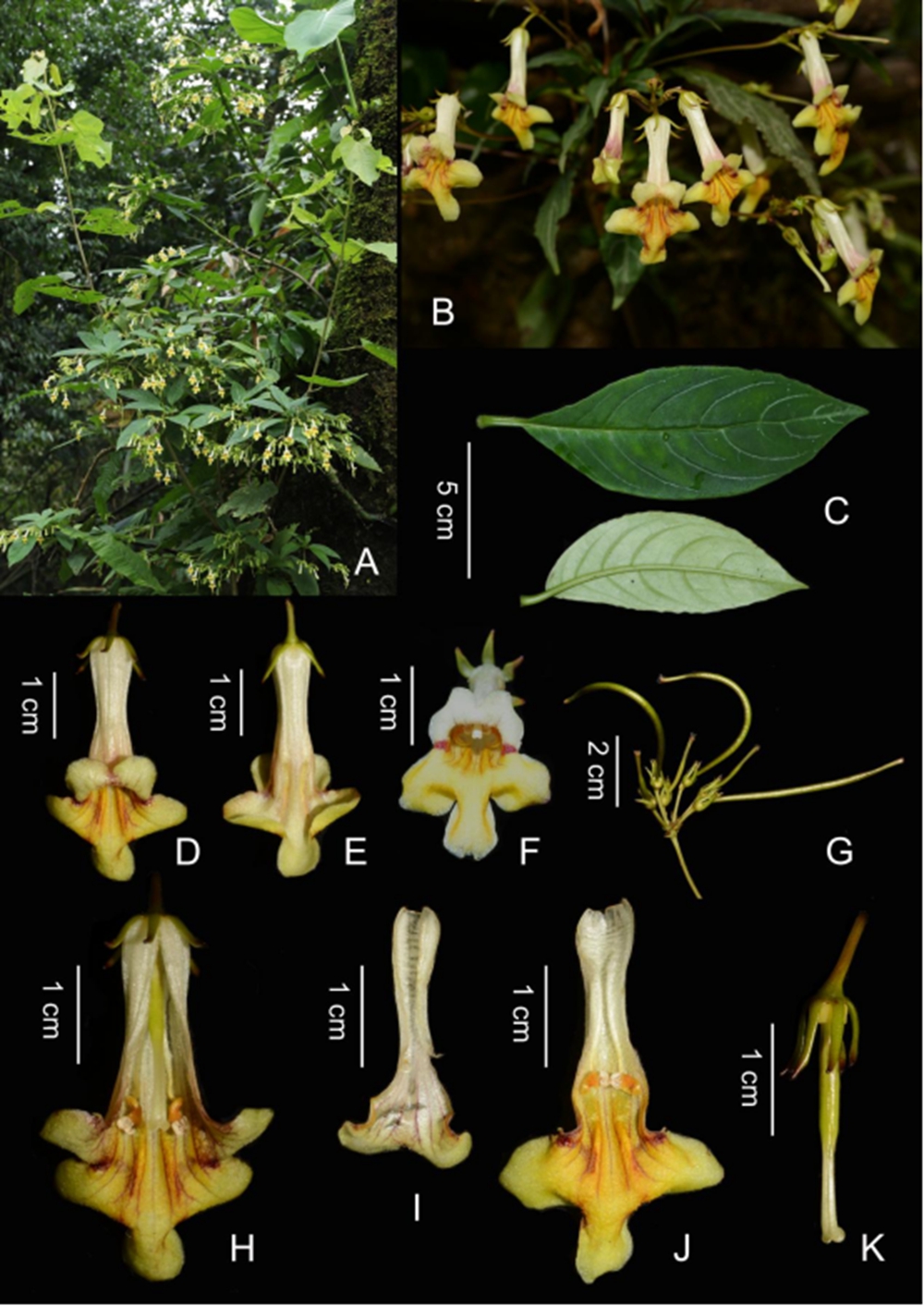Lysionotus encompasses more than 30 species distributed from Himalaya to southern China, Indo-China and southern Japan. About half of these species (18 species) are known from Yunnan,China.
During a botanical field survey of southwestern Yunnan in August 2019, researchers from Kunming Institute of Botany (KIB) found an unknown Lysionotus species with unusual flowers was discovered on trees in secondary forest in Cangyuan County, Yunnan, China. In the following year, another population of the species was found nearby in the same county by researchers from Xishuangbanna Tropical Botanical Garden (XTBG).
The researchers carried out careful morphological studies, comparing with other species of the genus, consulting literature and herbarium specimens of Lysionotus. They then confirmed that their materials represented a new species and named it as Lysionotus cangyuanensis to refer to the type locality in Cangyuan County.
The new species was published in Taiwania.
Lysionotus cangyuanensis is an epiphytic subshrub.It resembles Lysionotus sulphureoides and L. coccinus morphologically and ecologically. But it can be distinguished from others by its leaf blade size, bracts shape, corolla size and throat markings, and anthers shape. Its leaf blade is up to 13 cm long, bracts are elliptical to oblong. Its corolla is 3.5–4 cm long, with 15 purple longitudinal lines in throat and 1 purple patch at each junction of the upper and lower lips. The anthers are cordate.
The new species flowers from August to September. Currently, only two populations were found in secondary forest in Cangyuan County.One population was found less than 5 individuals growing on a tree of Alnus nepalensis at an elevation of 1802 m above sea level, and the other was found less than 10 individuals growing on two big trees about 50 m apart from each other at an elevation of ca. 2000 m above sea level.
“Field survey of this new species is still limited and only 2 populations and less than 15 individuals were found. According to the IUCN Red List Categories and Criteria (IUCN, 2022), the new species should be assessed as ‘Data Deficient’ (DD),” said SHEN Jianyong of XTBG.

Habitat and morphology of Lysionotus cangyuanensis. A. Habitat; B. Flowering plant; C. Leaf surface, adaxial and abaxial;D–F. Different views of flower; G. Infructescence, showing immature capsules; H–J. Dissected corolla, showing stamens and throat characters; K. Pistil, disc and calyx. (Photos. A, C, F, by WANG Wenguang; B, D–E, G–K, by LIU Cheng)
Contact
SHEN Jianyong
Department of Gardening and Horticulture, Xishuangbanna Tropical Botanical Garden, Chinese Academy of Sciences, Menglun, Mengla, Yunnan 666303, China
E-mail: shenjianyong@xtbg.ac.cn
Published : 01 October 2024

